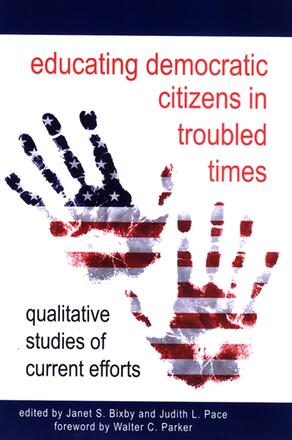
Educating Democratic Citizens in Troubled Times
Qualitative Studies of Current Efforts
Alternative formats available from:
Examines various aspects of citizen education programs that serve contemporary youth in the United States.
Description
This book offers a groundbreaking examination of citizenship education programs that serve contemporary youth in schools and communities across the United States. These programs include social studies classes and curricula, school governance, and community-based education efforts. The book takes an interdisciplinary approach to exploring the experiences and perspectives of educators and youth involved in these civic education efforts. The contributors offer rich analyses of how mainstream and alternative programs are envisioned and enacted, and the most important factors that shape them. A variety of theoretical lenses and qualitative methodologies are used, including ethnography, focus group interviews, and content analyses of textbooks.
Janet S. Bixby is Associate Professor of Education at Lewis and Clark College. Judith L. Pace is Associate Professor of Education at the University of San Francisco and the coeditor (with Annette Hemmings) of Classroom Authority: Theory, Research, and Practice.
Reviews
"…the editors and authors are energized to tackle the challenges of citizenship education and eager to share their insights with others." — American Journal of Education
"Read carefully and critically, the nine studies offer a treasure trove of best democratic practices to address the needs of 21st century citizens … Educating Democratic Citizens in Troubled Times is a must-read for social studies educators because it reminds us that good citizenship is much more than voting." — Theory and Research in Social Education
"…the editors have shown a clear vision by making sure the ten included studies focus on one of three areas of citizenship education: as it is formally taught in schools, as it relates to the field of public education as a whole, and as it moves from classroom to community. The studies are engaging and well written, and together offer a timely view of the state of educating for citizenship in the post-9/11 US." — CHOICE
"This book provides valuable information about what teaching and learning look like in specific contexts. It is particularly helpful in the range of settings included—from government and other social studies courses, to varied special projects and out-of-school programs. It is also insightful in looking at the topic from various perspectives—teachers, diverse young people, and curriculum materials." — Carole Hahn, author of Becoming Political: Comparative Perspectives on Citizenship Education